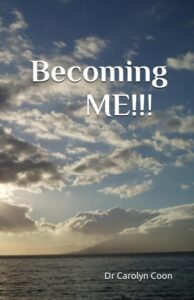Doesn’t that paint a vivid picture! And it is telling us…??? I sometimes think we like the phrase without ever defining the words. At times it appears that it is almost a badge… still with no definitions. I believe that the phrase was originally coined by Winston Churchill in 1939 to describe Russia and how that country operates. But without definitions, we still don’t truly know what we mean… or how others apply the phrase.
Using Webster as a guide, Riddle: “mystifying, misleading, or puzzling question posed as a problem to be solved or guessed”. Mystery: “a religious truth that one can know only by revelation and cannot fully understand; profound, inexplicable, or secretive quality or character”. Enigma: “something not understood or beyond understanding; someone or something that is difficult to understand or explain”. Do these definitions provide us with understanding? Context, perhaps. Understanding… maybe not. Who cares? Probably only those who believe one should know what they are saying and aren’t trying to be an enigmatic mystery left to or above(?) interpretation.
Anytime you tag a person or thing, you should always know what you mean and be able to define it for others – that’s why we should care. And with this particular phrase… even more so. I suspect that there is a bit of the riddle, mystery, enigma in each of us and that’s perfectly fine as long as we don’t get upset when it seems that no one understands us. My bias is that there is a core part that each of us do guard closely and only let a few select people into this inner chamber of who we are. As a result… I also suspect that this means that occasionally we do appear mysterious or enigmatic.
When the riddle/mystery/enigma is a ‘thing’ then we really need to know which because using Webster’s definitions, a riddle is the only component that can be ‘solved’ through one’s intellect as the other two have to be resolved by revelation and one can never command revelation. OK, this whole discussion has been somewhat tongue-in-cheek. However, when we don’t understand something or someone, we shouldn’t just ignore them by tagging them as a riddle, mystery, enigma, thus dismissing them or ‘it’.
Personally, I’ve always enjoyed mysteries (my prime entertainment reading genre) and puzzles so I’ve always appreciated an exercise to expand or challenge my understanding capabilities. But when it comes to people – I always wonder what they are telling me by being a riddle/mystery/enigma because I would contend that this behavior is deliberate. How can one behave this way… accidentally? This also reinforces my question-asking nature which is how I tend to handle these situations. I do tend to be black/white, yes/no so I don’t have much patience with those who try to be a riddle, wrapped in a mystery, inside an enigma.






